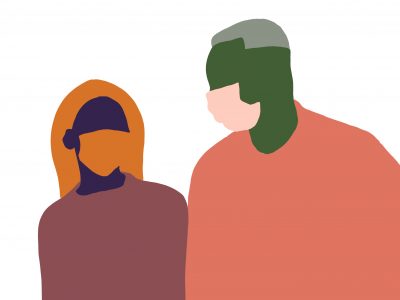Tsunamis in cities you have never heard of. Bloody wars halfway across the world. Government shutdowns miles and miles away. Theories about the future of climate change.
It is natural for some people, particularly those from privileged backgrounds, to feel disconnected from issues a world away from their own. This barrier between people and current events can result in unintentional apathy. How many times have you heard someone say, “Issue X doesn’t directly affect me, so why should I care?”
Such apathy does not necessarily indicate a lack of sensitivity toward these issues. Due to media coverage, advocacy campaigns and public discourse, people are typically aware of these issues’ large-scale negative implications.

They tend to sympathize with the frustration, tensions and losses associated with these developments. But given the large scope and systemic roots of these issues, the ordinary citizen is generally helpless in solving them.
This helplessness is accentuated by the personal disconnect and resulting lack of empathy that prevent people from feeling a sense of urgency. Even if they claim to care about the issues, they are less inclined to prioritize action because of how small it seems, the assumption that others will undertake responsibility and the presence of more immediate matters on their plates.
It is this same apathy that discourages people from voting, donating to causes or lobbying for favorable policies. This is the same apathy that compels people to underestimate the impact of their individual actions. What difference will one vote, dollar or phone call make in the grand scheme of things?
The COVID-19 pandemic is challenging this trend.
Exactly one year ago, when people scrambled to adjust to remote lifestyles, I remember my friends and family expressing their shock at how rapidly everything unfolded.
One moment, the disease primarily impacted China and Italy — a distant headline for many of us. The next, it had found its way into every corner of the globe. We were all suddenly at risk of getting infected or infecting others.
At the same time, each of us were individually affected by the pandemic, resulting lockdowns and personal challenges. The personal connection to the problem created an unparalleled sense of urgency and concern across borders, dismantling typical levels of apathy.
Each person became affected not only by the pandemic itself but also by the choices and actions of those around them — wearing face masks, avoiding large social gatherings and washing hands.

We discovered that while most young people are relatively less impacted by COVID-19’s health risks, they can still act as carriers and pass it to individuals who are elderly, lack proper health care or have pre-existing conditions — for whom the disease could be fatal.
During the pandemic, it is increasingly clear that all of our choices are locked in a domino-like network. We had no choice but to invest our trust in our friends’ choices as well as their friends’ choices and so forth.
While our actions impact others normally, we didn’t have the fear or high stakes of a pandemic to heighten our awareness.
This situation demanded a culture of accountability from our communities.
Boston University’s “F— It Won’t Cut It” project helps cultivate this culture by reminding students of the implications of their individual actions. This campaign encourages students to wear masks, practice social distancing and be aware of how their actions ultimately affect the well-being of others as well as the course of the pandemic.
While we all share risks associated with COVID-19, we benefit from something just as powerful: the ability to contain the virus through protective practices. Our individual actions are particularly important for limiting the spread, considering the domino-effect nature of transmission and the lack of coordination between governing institutions.
Some issues can be addressed with the majority of society’s support, but this particular issue requires collective cooperation and action. Unfortunately, this mentality has been challenging for us to universally adopt, particularly in individualistic societies. This failed attempt at mass coordination is part of the reason why we are still in this battle one year later.
This phenomenon is unique because everyone has a personal incentive to fight alongside the larger societal motivations of ending the pandemic. We all felt the disappointment that came with canceled events, the frustrations over our new lifestyles’ challenges and the heightened everyday fear of the health risks. There is a lot at stake for everyone.
While the COVID-19 pandemic has been devastating on many fronts, it has hopefully compelled people to be more mindful about their individual choices and impacts. This newfound urgency and self-agency can help us make inroads in solving other pressing issues.
Until then, wear your masks, socially distance and encourage others to do so too.























































































































